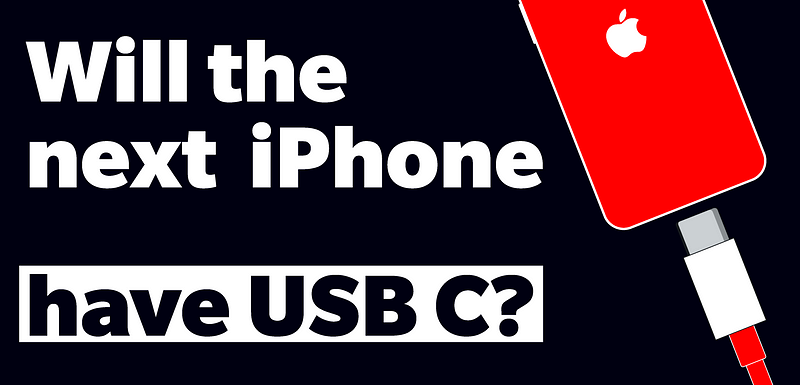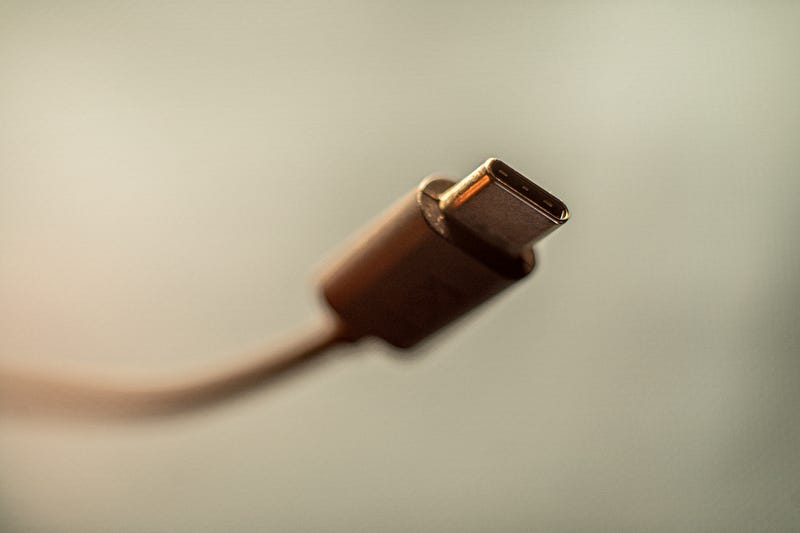# EU Mandating USB-C: Implications for Apple's iPhone 14
Written on
Introduction
For many years, Apple relied on its proprietary 30-pin dock connector to charge earlier iPhone models. This changed in September 2012 when Apple introduced the Lightning port, a unique charging solution. However, recent legislation proposed by the European Commission aims to mandate that all portable electronic devices, including Apple's iPhones, transition to USB-C charging. What implications does this have for Apple?
Background Developments
On September 23, the European Commission introduced legislation intended to establish USB-C as the universal charging standard for all portable electronic devices. This initiative aims to simplify charging by ensuring that smartphones, headphones, cameras, gaming consoles, and tablets all use the same port. If the law is enacted, manufacturers will be required to sell devices without bundled chargers, promoting a more sustainable approach to electronics.
While the European Parliament has yet to vote on this proposal, should it pass, companies will be granted a two-year compliance period.
Rationale Behind the Law
The European Commission has justified this initiative by stating its goal is to enhance consumer convenience and reduce the environmental impact associated with the production and disposal of chargers. By unifying the charging method, the EU aims to minimize the unnecessary waste caused by various charger types. Given that USB-C is currently recognized as the most efficient charging standard, the move towards this technology appears logical.
Apple's Perspective
Traditionally, Apple has maintained a distinct approach, often operating independently of industry trends. This inclination can sometimes hinder user experience, as evidenced by the company's continued use of the Lightning port for over a decade, despite the widespread adoption of USB-C. Although Apple has integrated USB-C into several devices, including iPads and Macs, it has yet to adopt this standard for iPhones.
In response to the proposed regulations, Apple acknowledged the environmental goals but expressed concerns that enforcing a single charging port could stifle innovation and hinder technological advancements. "We share the European Commission’s commitment to protecting the environment," the statement indicated. "However, we are worried that strict regulations mandating a single connector could hinder innovation rather than promote it, ultimately harming consumers both in Europe and globally."
Future Implications
If the European Parliament approves this legislation, Apple and other companies will have a two-year window to adapt. This timeline suggests that the iPhone 14 may not need to conform to the new requirements, while the iPhone 15, expected in 2023, could be the first model subject to the law.
However, there's a chance that this regulation may not come into effect at all, particularly since it won't apply to devices that charge wirelessly. Reports indicate that Apple is exploring a fully portless iPhone in the coming years, which could mean that they avoid the transition to USB-C entirely. Furthermore, there's a possibility that the proposal may not receive approval, nullifying the need for any changes.
Overall, while adopting USB-C could benefit consumers, Apple might resist such a shift, potentially opting to accelerate its plans for a wireless iPhone instead.
Supporting Us
Discover our sponsors and affiliate links here, where we earn a small commission when you make purchases: Honey, a free browser extension that helps you find discounts, and Rakuten, offering cashback on purchases. Support our writing by subscribing to Medium through my link.
References

